
The History of the Albert-Schweitzer-House and his Blessing and special Aura
Part 1 The goals of the Albert Schweitzer House
The Albert-Schweitzer-House (further called: "A.-S.-H.") in Bonn-Bad Godesberg has been offering events, seminars and lectures with a very broad spectrum of content to visitors from near and far since 1967, i.e. for almost 60 years now.
There is a common denominator or a common thread for all content and types of events: This institution has consistently remained true to the original guiding principle of promoting a mental or spiritual view of life. This happens in theory (lectures) and in practice (experience events, meditations, healing energy sessions, spiritual blessings, practical exercises, applications of what has been learned).

.jpg)


The topics of these events are all anchored in the spiritual side of life: spiritual healing, natural healing methods, health, psychology, nutrition, yoga, meditation, positive thinking, esoteric knowledge, self-knowledge, astrology, mediumship, ethics, various world views and ideologies (e.g.: anthroposophy, Kabbalah, theosophy, Rosicrucianism, Buddhism, Hinduism, Sufism, Christian thought, Indian wisdom, shamanism, comparisons of religions, mysticism of all peoples, Advaita, etc.) as well as other related areas of spiritual science.
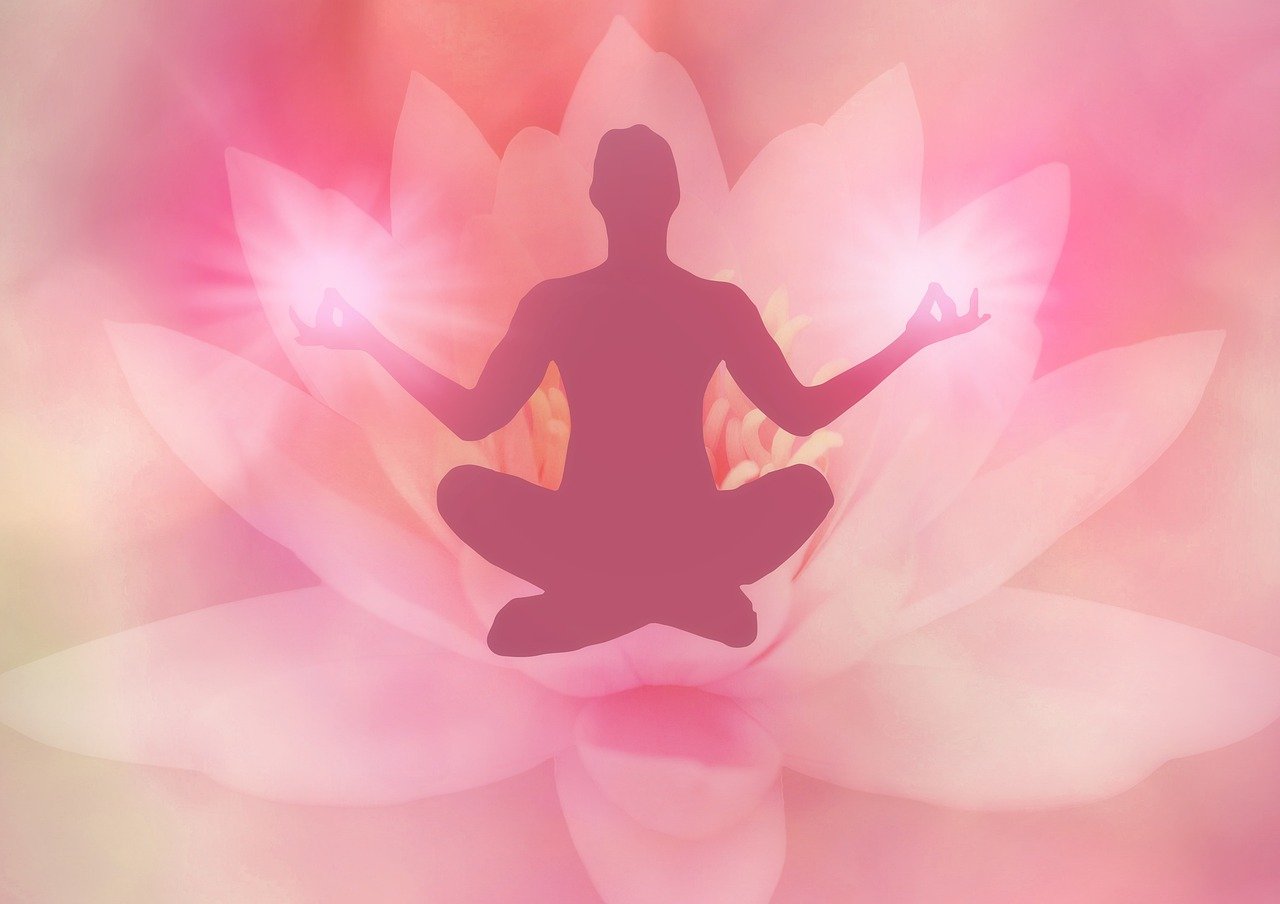
.jpg)

What is significant here is that the ASH has never committed itself to a single spiritual movement or direction. It has always remained true to its original idea of being universal in acceptance, tolerance, understanding, openness and orientation. As an institution, it became a forum, a place of spiritual exchange, an academy of universal spiritual knowledge. It offered spiritual and tangible knowledge without dogma, determination or wisdom, and this continuously for decades.
The ASH has always strived to provide the individual visitor on their personal development path with important impulses for inner growth and information, health, meaningful education, overcoming fear of death, additions to their world view, as well as practical spiritual "tools" or techniques for everyday spiritual practice, through various speakers from home and abroad.
Accordingly, there were many types of events: lectures, discussion groups, workshops, seminars, courses, energetic exercise sessions (yoga, tai chi, etc.), meditations, group healing sessions, individual sessions, training and further education as well as cultural events (exhibitions, concerts, storytelling sessions, dancing, painting, singing, etc.)
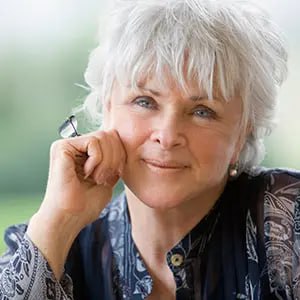


The ASH is different from all other spiritual or intellectually oriented event venues. One must remember that the vast majority of other seminar houses: (firstly) were built later, (secondly) were either esoteric and commercially oriented or (thirdly) were tied to a spiritual viewpoint or teaching (Buddhist, Christian, anthroposophical, esoteric, etc.) or (fourthly) to the spiritual authority of individual teachers, and because of all this, they offer a much narrower range of topics.
Part 2 The History of the Albert-Schweitzer-House and of its naming
The current Albert Schweitzer House once housed the local "Child Protection Association" and "Kneipp Association" and was founded by Emma Schubmehl (1895-1984), who pursued ethical goals. She dared to resist the regime during the dangerous Nazi era and was awarded the Federal Cross of Merit for her courageous and selfless commitment to her fellow human beings.

She bought the house at Beethovenallee 16 with compensation money that she received from the state after the war for the disadvantages she suffered in order to establish the "Albert Schweitzer House" in it. For details, see the menu on the left under the heading "Biography of the founder".
The original guiding principle or founding motto of the house (before the founding of the "Albert Schweitzer House" association as a lecture house) was about an "Albert Schweitzer Health House" with three pillars: 1. Healthy nutrition, 2. Accommodation for children in need, and 3. Health exercises and lectures on health. In this context, Mrs. Schubmehl had already written a letter to Albert Schweitzer in 1961 in which she asked him for permission to name a "House of Health" after him.
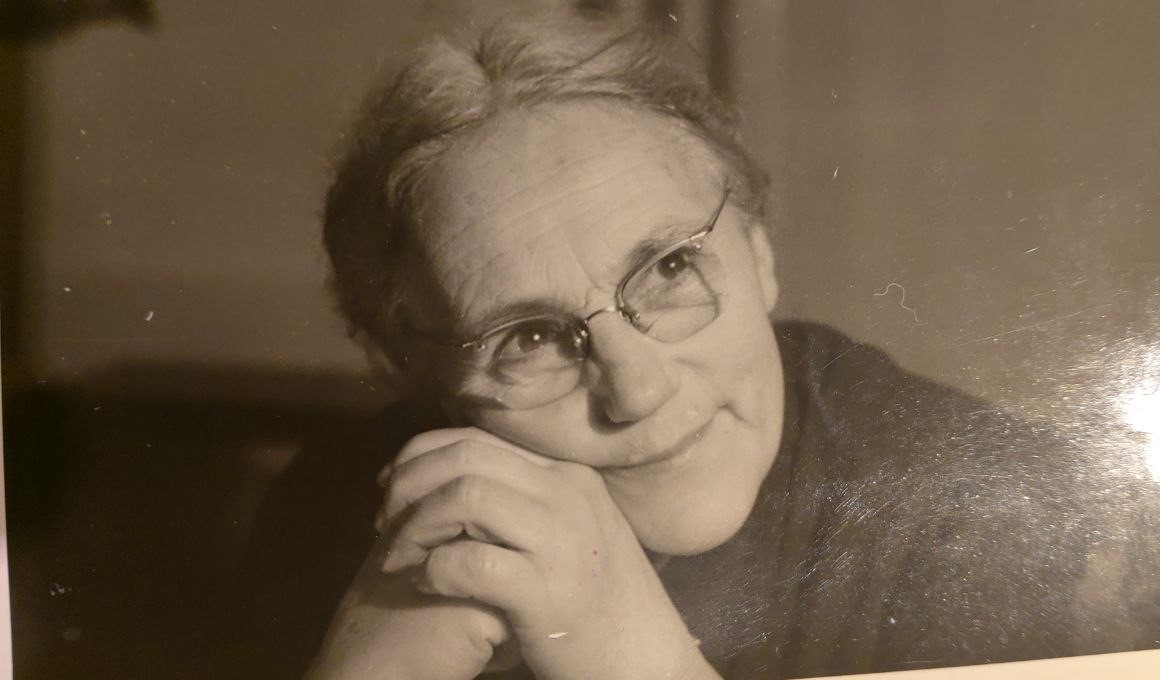
.jpg)
Schweitzer agreed with this (in a reply letter from 1961 that is still preserved today, see the transcript below). He attached importance to maintaining and promoting content that is in line with his well-known humanitarian motto: "Reverence for life", as well as a universality in the search for truth.

According to this quote coined by Albert Schweitzer, one of the goals of the Albert Schweitzer House is to preserve, promote and support plant, animal and, above all, human life according to its respective existence, as well as to offer spiritually applicable knowledge and wisdom in a non-dogmatic, universal form. Albert Schweitzer's philosophy of life was based on his experiences and a selfless commitment to serving humanity in thought and action. He received the Nobel Peace Prize in 1952 for his humanitarian efforts.
Albert Schweitzer died in 1965. Two years later, the "Albert Schweitzer Health House" developed into a spiritual institution when its founder began to use the house for lectures. A decisive and groundbreaking impulse came from Dr. Heinz Niedrig, who advised Mrs. Schubmehl on her project. He was keen that only spiritual topics should be discussed in the house. He was a student of the enlightened Indian spiritual teacher Dr. Pranjivan Mehta (1864 – 1932).
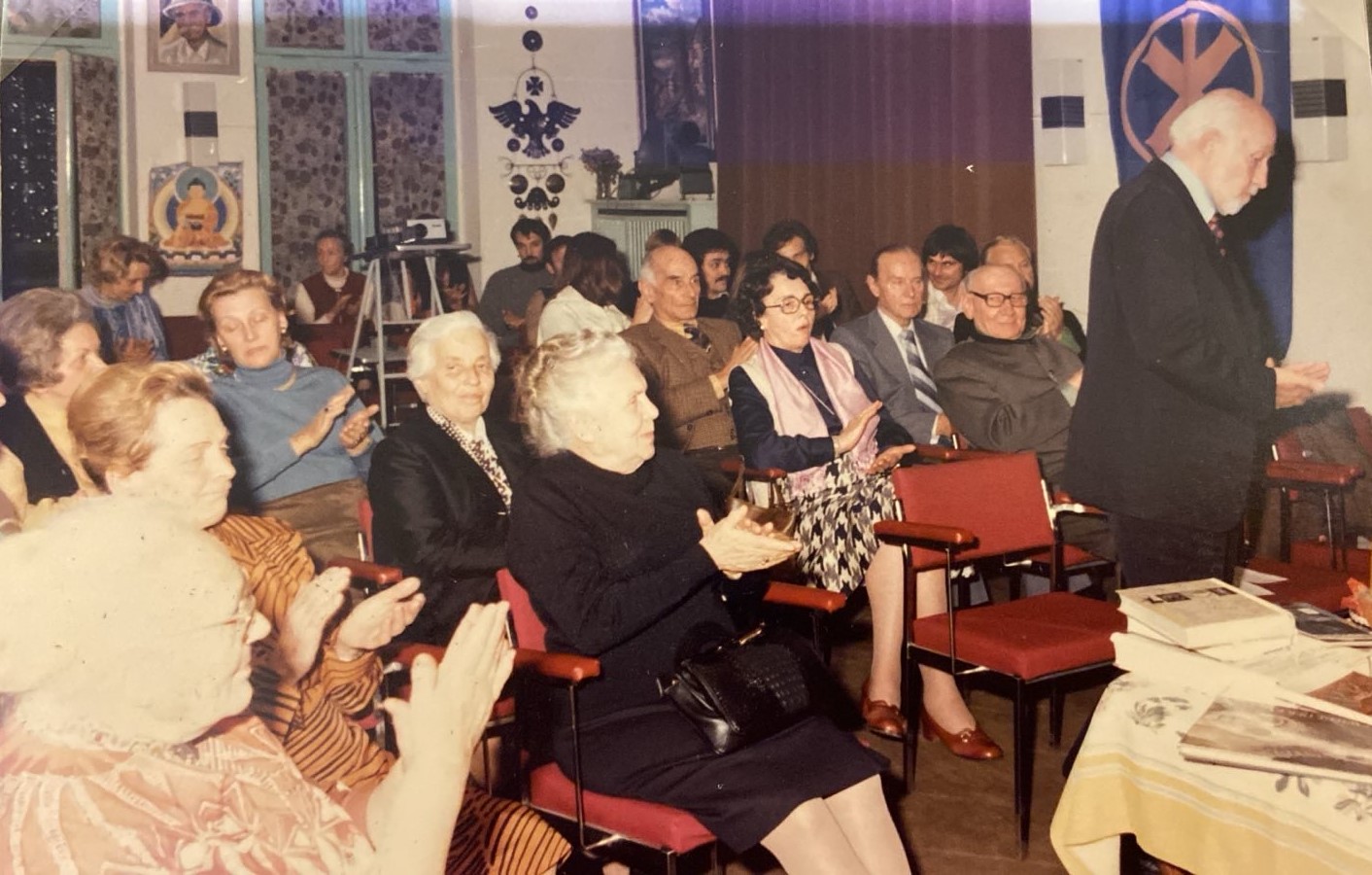
Dr. Metha was in turn a fatherly friend and wise advisor to Mahatma Gandhi during his stay in London in 1881 as a student. According to Gandhi himself, his groundbreaking work, Hind Swaraj, in which he revealed his new-found philosophy of life (first published on 11 and 18 December 1909 in the Gujarati columns of Indian Opinion), was a faithful record of his conversations with the doctor and lawyer Dr. Mehta, which he had written in just eleven days on his return journey from London to South Africa, 4 years before the founding of the Indian National Congress in 1885 (Gandhi was later also enlightened).
Albert Schweitzer was a devout Christian and maintained beliefs rooted in the Christian tradition. But at the same time, like the ASH, he was sincerely open to other forms of spiritual quest: in his writings one can see that his spiritual conception of life is very close to the worldview of theosophy.
Theosophy was a syncretism between ideas and religions from East and West in order to combine them in the form of a universal wisdom about life and the divine. Given the very early date of its founding (1875), one can say that the Theosophical Society (1875) was very progressive in putting forward universal ideas in the field of worldview and religion.
In fact, a letter from Albert Schweitzer to the musician and conductor Bruno Walter proves that Schweitzer was friends with Rudolf Steiner in his early years. Schweitzer was introduced to Rudolf Steiner by Annie Besant in Strasbourg.
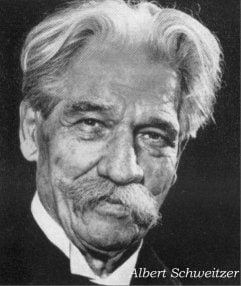
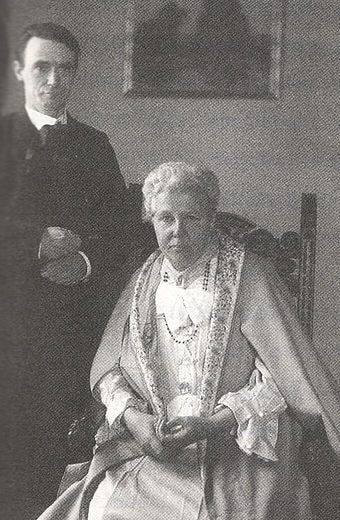
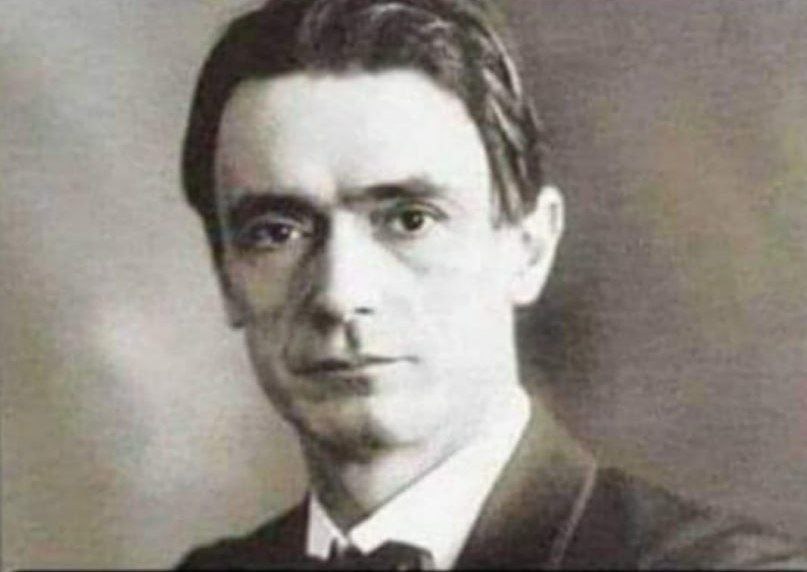
Annie Besant was president of the Adyar Theosophical Society from 1907. The first meeting between Schweitzer and Rudolf Steiner must therefore have taken place before the split of a large part of the German theosophists under Rudolf Steiner and the founding of his "spiritual science" ("anthroposophy"), i.e. at the time when Steiner was still chairman of the German section of the Theosophical Society from 1902.
In the following letter from Albert Schweitzer, in which he comments on his meeting with Rudolf Steiner, his spiritual perspective is revealed:
"I will write about our meeting in Strasbourg, where Annie Besant introduced us. I can still remember our conversations. They inspired me to continue to associate with him and to remain aware of his importance. What we both share is the desire to replace the uncivilized with civilization.
In Strasbourg we both realized that we had this relationship. He expected civilization to emerge from ethical thinking and from the insights of the humanities. In terms of my own character, I had to adhere to the idea that civilization emerged from an immersion in the true nature of the ethical.
In this way I came to the ethics of reverence for life, which I hope will stimulate the emergence of civilization.
I realize that Rudolf Steiner was very sorry that I had stuck to the old way of thinking, but we both felt the same obligation to lead people back to true civilization. I was delighted with what he achieved in the world with his great personality and his deep humanity. Everyone should follow the road that belongs to them..."
In order to give form to the newly created "lecture house for spiritual topics", the "Albert Schweitzer House" association was finally founded on August 15, 1967, whereby the focus on Schweitzer's ethics and ideals was maintained and emphasized.
From this phase onwards, a spiritual thought form developed which blessedly supported the house and has remained so for all these years up to the present day.

For almost 60 years now, the "Albert-Schweitzer-House" has served the spiritual contemplation of life.
After Emma Schubmehl's death in 1984, Michael Esser took over responsibility for the house for over 20 years. He selflessly, idealistically and selflessly gave up a (legal) professional career and the income associated with it in order to take on the effort of this task on a voluntary basis. He literally embodied the "good spirit" of this institution.
He succeeded in attracting many well-known, interesting, sometimes international speakers, healers, spiritual teachers and authors on spiritual topics from all over the world to the house (see the "Famous Guest Speakers" section of the ASH).
The speakers sometimes traveled long distances to work here, obviously inspired by the spiritual openness that prevailed in the house and the keen interest of his almost wise audience. Interested groups formed around individual speakers who worked here regularly.
After other association leaders from the Lutz family, who have long been closely connected with the house, Jürgen Praß has now selflessly taken on the task of continuing the spiritual tradition of the house, which requires a great deal of idealism.
Part 3 The special spiritual blessing for the Albert-Schweitzer-House, its events and visitors

As a blessing for its universal spiritual message of spreading knowledge and healing, the Albert Schweitzer House, as an institution and place of gatherings for spiritual purposes, has experienced a permanent spiritual blessing since its founding in 1967, in the form of energetic radiation to promote wisdom.
The blessing presence in the ASH is noticeable for many visitors, in the sense that they also visit the house because of its special atmosphere.
The blessing entity or form of the Holy Spirit, which is present in the ASH, also once worked in ancient Persia around 3000 years ago in a temple of the "worship of the eternal flame of truth."


Accordingly, in every fire sanctuary of Zoroastrianism there was a fire guarded by priests that was never allowed to go out, as a symbol of the fearless love of truth, combined with sacred acts, as a place of encounter between man and the divine. It was within the framework of the then predominant religion of the wise, holy and enlightened founder of the religion Zarathustra.

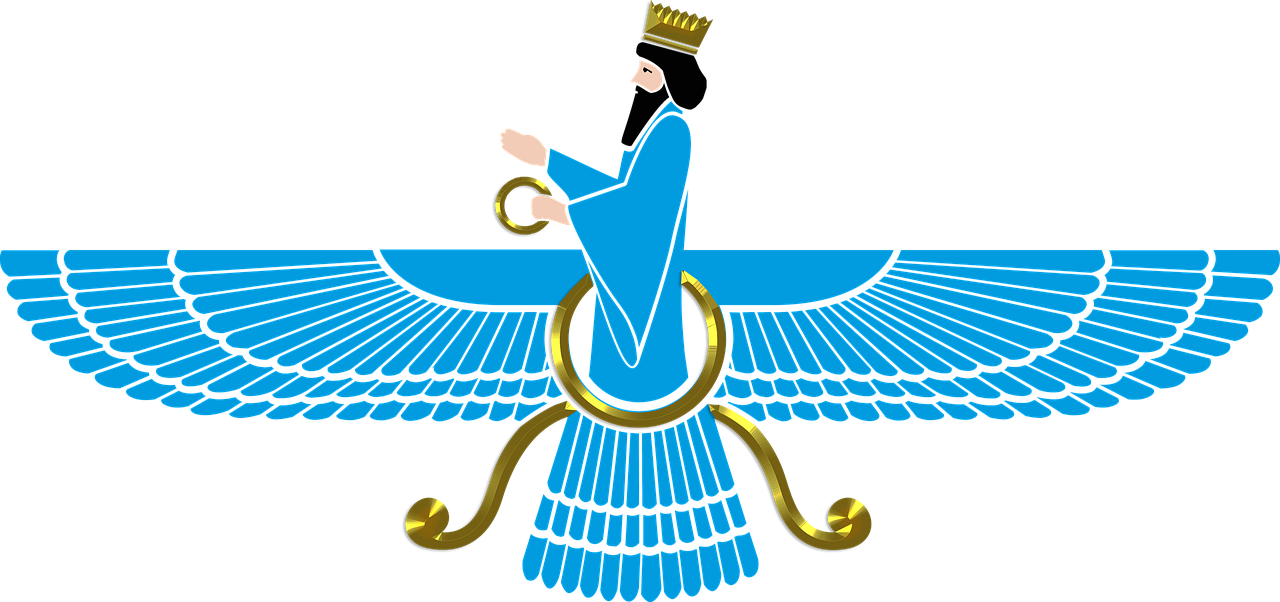
The blessing served then and there as a religious impulse to find the truth.
As far as this blessing is concerned in the case of the Albert Schweitzer House, it has been modified and now serves to support an ideal of finding the truth in unconventional, pluralistic, tolerant, cosmopolitan and universal ways.
This attention to the house has also been extended by the "Holy Spirit" has changed over time. Over the course of almost 6 decades of spiritual events, this radiation in the Albert Schweitzer House has grown in maturity, in intensity, and, in terms of its energetic presence, has become increasingly concrete in various areas:
a) In the beginning, this type of blessing was more mentally oriented, in order to stimulate and promote the thinking power of the people who came there: It was intended to promote the ease of finding independently gained knowledge.
b) The more sincere seekers worked there as speakers (hundreds), healers (approx. 50) and enlightened people (approx. a dozen), and the more meditations and healing meditations, etc. took place there, the more the atmospheric background energy in the ASH grew into a spiritual "causal" blessing. This is otherwise only the case in places of religious contemplation (for example in meditation centers of various schools, in temples, or in places of worship of various religions).
The visitor's love for the ideals of the divine was thus easier to experience in events there that promoted this aspect accordingly.
c) Because the ASH has hosted a very wide range of spiritual currents, blessings and solutions as well as aspects of life in an unusual and extremely tolerant way, the aura of the house is correspondingly versatile but also flexible in its unusual adaptability.
d) In the ASH there is also a potentially living "astral-emotional" layer in this blessing aura for the house, which can be effortlessly enlivened and promoted through human interactions, mental-psychological work, etc., which in itself is rare for a spiritual center.
e) A dense ethereal aura layer has even formed in the ASH, which is conducive to and supportive of healing efforts, over time, as a result of the support, promotion, accompaniment and reinforcement of the numerous healing energies and healing efforts that have taken place here over the decades.
This implies, among other things, for participants and healers alike, that healing efforts do not have to be laboriously built up through healing energy flowing in during an event, but are already available - on demand: healing energy is thus more intense and is promoted.

In summary, one can say that the blessing energy in the ASH strengthens the radiation of the lecturers and shields the audience. It is part of the atmosphere, aura, blessing and uplifting feeling that participants can noticeably experience during an event.
It also brings with it the extraordinary flexibility (love of truth) to adapt to the extremely different energies that unfold in the various types of events.
The message of this blessing is the same as the objective of the ASH: to promote spiritual knowledge that reflects the diversity of life, as well as tolerance for the diversity of spiritual currents. This should lead to self-knowledge for the individual.
.jpg)

